Factory Tour
Understanding the Benefits of Car Start Lithium Battery Technology for Modern Vehicles
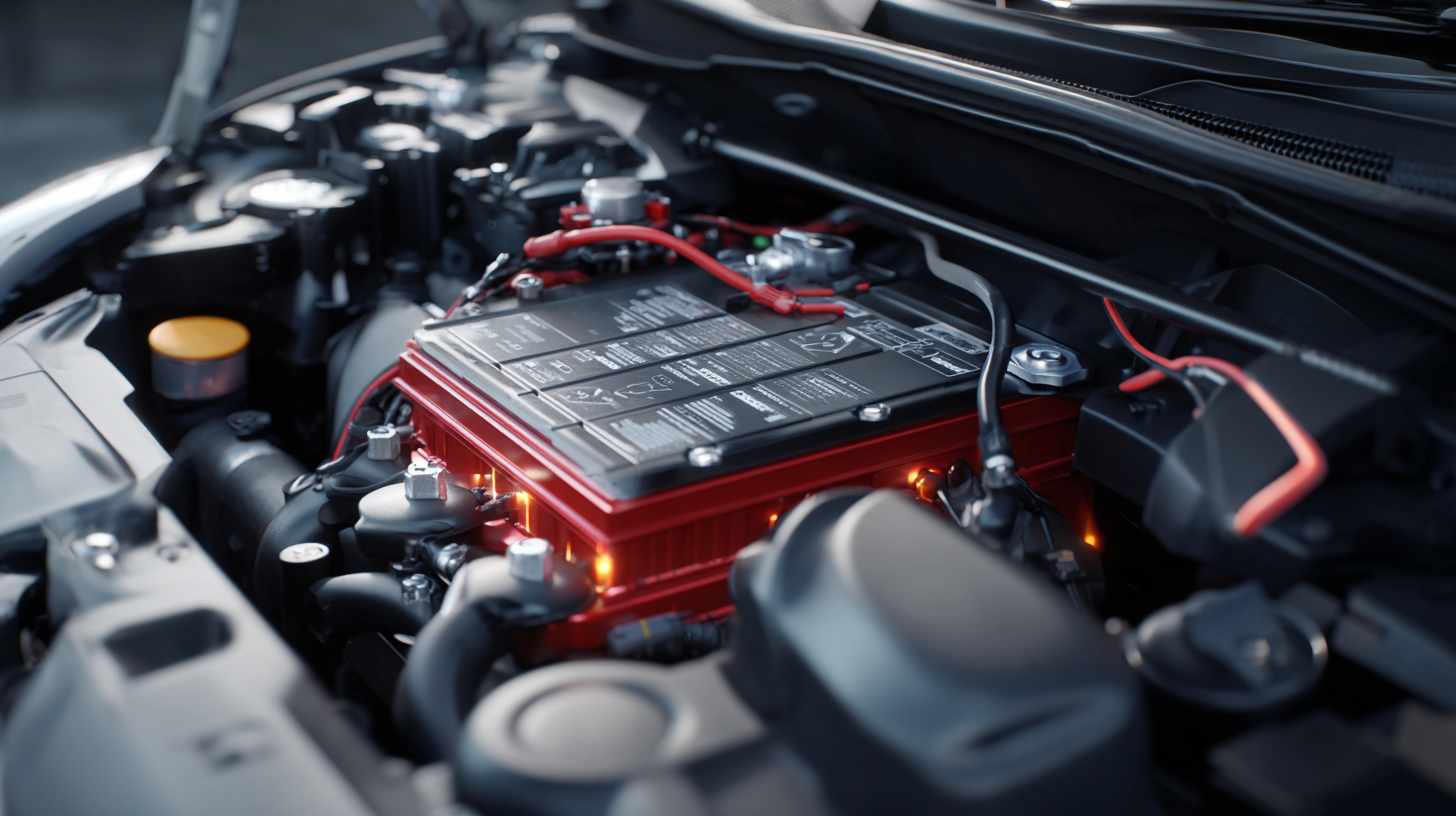 The automotive industry is undergoing a significant transformation with the adoption of advanced battery technologies, particularly the Car Start Lithium Battery, which has emerged as a crucial innovation for modern vehicles. According to a report from the International Energy Agency, lithium-ion batteries are expected to dominate the global battery market, comprising 60% of total battery sales by 2025. The Car Start Lithium Battery is designed to deliver higher energy density, faster charging times, and a longer lifespan, making it an ideal choice for starting internal combustion engines as well as powering emerging electric vehicle technologies. Furthermore, industry studies suggest that vehicles equipped with lithium batteries can improve fuel efficiency by up to 5% due to their optimized power delivery systems. As automakers increasingly seek ways to enhance vehicle performance and environmental sustainability, the integration of Car Start Lithium Battery technology promises to play a pivotal role in meeting both consumer demands and regulatory standards in the years to come.
The automotive industry is undergoing a significant transformation with the adoption of advanced battery technologies, particularly the Car Start Lithium Battery, which has emerged as a crucial innovation for modern vehicles. According to a report from the International Energy Agency, lithium-ion batteries are expected to dominate the global battery market, comprising 60% of total battery sales by 2025. The Car Start Lithium Battery is designed to deliver higher energy density, faster charging times, and a longer lifespan, making it an ideal choice for starting internal combustion engines as well as powering emerging electric vehicle technologies. Furthermore, industry studies suggest that vehicles equipped with lithium batteries can improve fuel efficiency by up to 5% due to their optimized power delivery systems. As automakers increasingly seek ways to enhance vehicle performance and environmental sustainability, the integration of Car Start Lithium Battery technology promises to play a pivotal role in meeting both consumer demands and regulatory standards in the years to come.
Overview of Car Start Lithium Battery Technology
Car start lithium battery technology represents an innovative leap in automotive power solutions, particularly relevant for modern vehicles. This technology significantly enhances the capabilities of car batteries, offering improved energy density and faster charging times, which are critical for cold starts and overall vehicle performance. As temperatures drop, traditional lead-acid batteries often struggle, leading to decreased reliability. However, lithium batteries effectively mitigate these issues, providing a dependable starting power regardless of external conditions.
Recent advancements, such as the development of solid-state lithium batteries, show promise for even greater performance and safety. The introduction of technologies that integrate supercapacitors is transforming car starting systems, allowing for both enhanced safety and extended lifespan. The synergy between lithium batteries and supercapacitors offers a pathway to stable and efficient energy delivery, vital for electric vehicles as they strive to overcome the challenges of cold weather and enhance overall usability. With ongoing research and advancements, the future of car start lithium battery technology is poised to redefine automotive energy solutions, leading to more resilient and efficient modern vehicles.
Benefits of Car Start Lithium Battery Technology
The chart above illustrates the benefits of car start lithium battery technology across various dimensions. The scores showcase the advantages of weight reduction, charging time, lifespan, temperature tolerance, and energy density, highlighting the significance of lithium batteries in modern vehicles.
Key Advantages of Lithium Batteries for Vehicle Performance
Lithium battery technology has transformed vehicle performance, offering significant advancements over traditional battery systems. The most notable advantages of lithium-ion batteries (LIBs) include higher energy density, faster charging capabilities, and improved longevity. With their lightweight nature, LIBs enhance vehicle efficiency by maximizing the energy-to-weight ratio, allowing for longer driving ranges on a single charge. Recent innovations like lithium hydroxide for cathode production further elevate EV energy density, ensuring that modern vehicles can deliver superior performance without compromising safety.
In addition to enhancing performance, lithium battery technology addresses critical safety concerns that have historically plagued battery systems. Research into materials such as gel polymer electrolytes (GPEs) offers potential solutions to reduce flammability and improve stability under various operational conditions. Moreover, advancements in nanostructure synthesis and the application of metal-organic frameworks (MOFs) bolster the structural integrity and conductivity of cathodes, leading to more reliable energy storage systems. As the automotive industry continues to evolve, employing advanced lithium technologies will be pivotal in driving the next generation of electric vehicles.
Comparison of Lithium Batteries with Traditional Lead-Acid Models
Lithium batteries have increasingly replaced traditional lead-acid models in modern vehicles due to their superior performance characteristics. Unlike lead-acid batteries, which are bulky and heavy, lithium batteries are significantly lighter and more compact, resulting in better fuel efficiency and improved vehicle handling. This weight reduction is particularly beneficial for electric and hybrid vehicles, where every ounce counts. Additionally, lithium batteries offer higher energy density, allowing for longer driving ranges and more efficient energy use, making them ideal for the demands of contemporary transportation.
In terms of longevity, lithium batteries also outshine their lead-acid counterparts. While lead-acid batteries typically have a lifespan of 3 to 5 years, lithium batteries can last up to 10 years or more with proper management. This extended lifespan translates to lower replacement costs and reduced environmental impact. Moreover, lithium batteries charge faster and endure more charge cycles, enhancing convenience for users. Overall, the advancements in lithium battery technology present compelling advantages that align well with the evolving needs of modern vehicle designs.
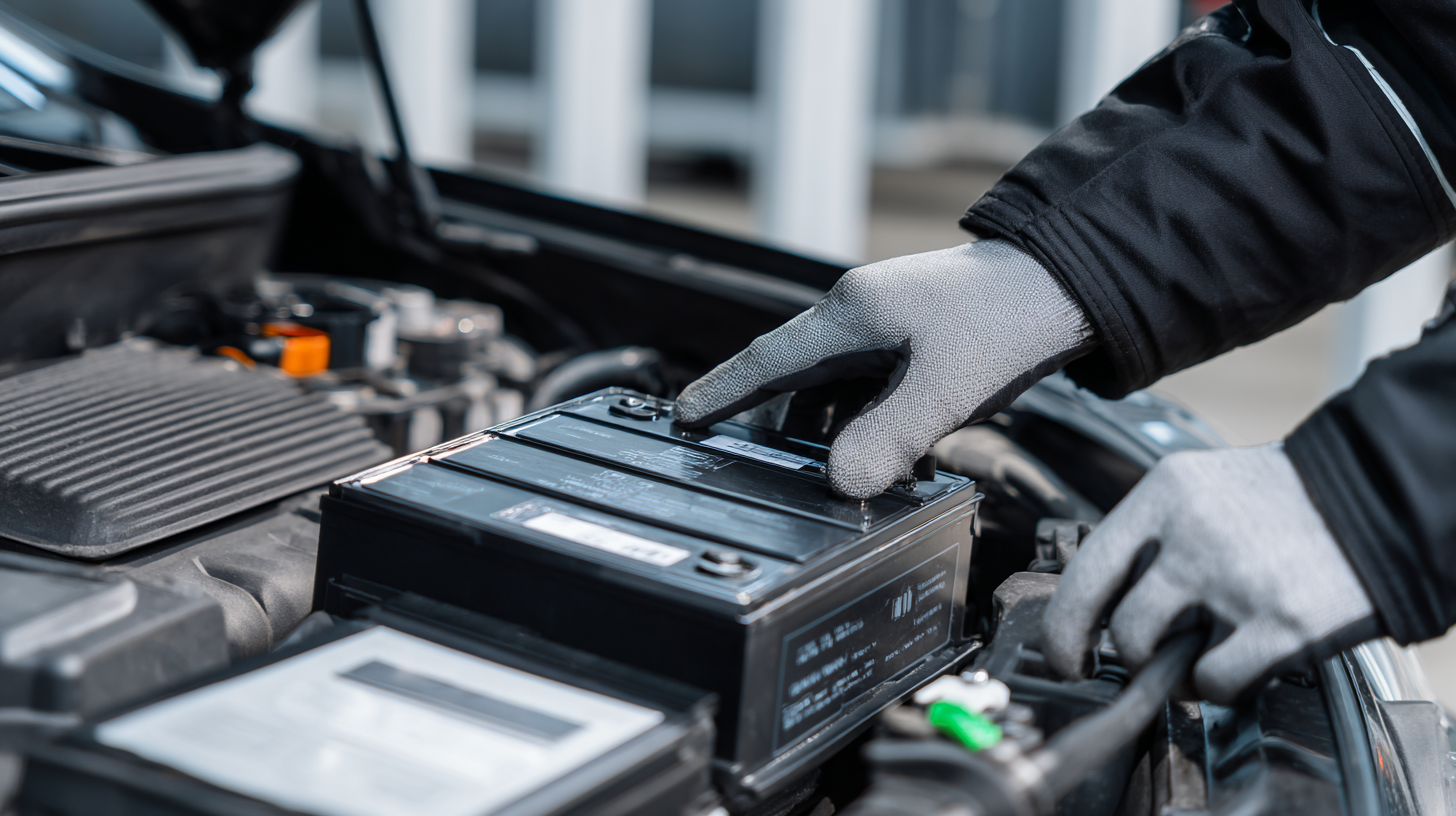
Impact of Lithium Technology on Vehicle Efficiency and Sustainability
Lithium battery technology has revolutionized the automotive industry, significantly enhancing vehicle efficiency and sustainability. According to a report by the International Energy Agency (IEA), the use of lithium-ion batteries in electric vehicles (EVs) can reduce greenhouse gas emissions by up to 70% compared to conventional gasoline engines. This dramatic decrease is due to the batteries' ability to store and deliver energy more efficiently, allowing motors to operate at optimal performance levels while minimizing energy losses.
Moreover, advancements in lithium technology have led to higher energy density batteries, meaning vehicles can travel longer distances on a single charge. A report from BloombergNEF highlights that the weight and size of lithium batteries have decreased by 40% since 2010, allowing manufacturers to design lighter vehicles that consume less energy overall. This not only boosts the range of EVs but also contributes to reducing overall emissions during production and use.
**Tips:**
1. When considering a new vehicle, look for models that utilize advanced lithium battery technology for improved efficiency.
2. Regular maintenance and optimal charging practices can prolong the lifespan of your lithium battery, ensuring sustainability in your driving habits.
3. Stay informed about local incentives for electric vehicles, as many regions offer tax credits or rebates to encourage the adoption of greener technologies.
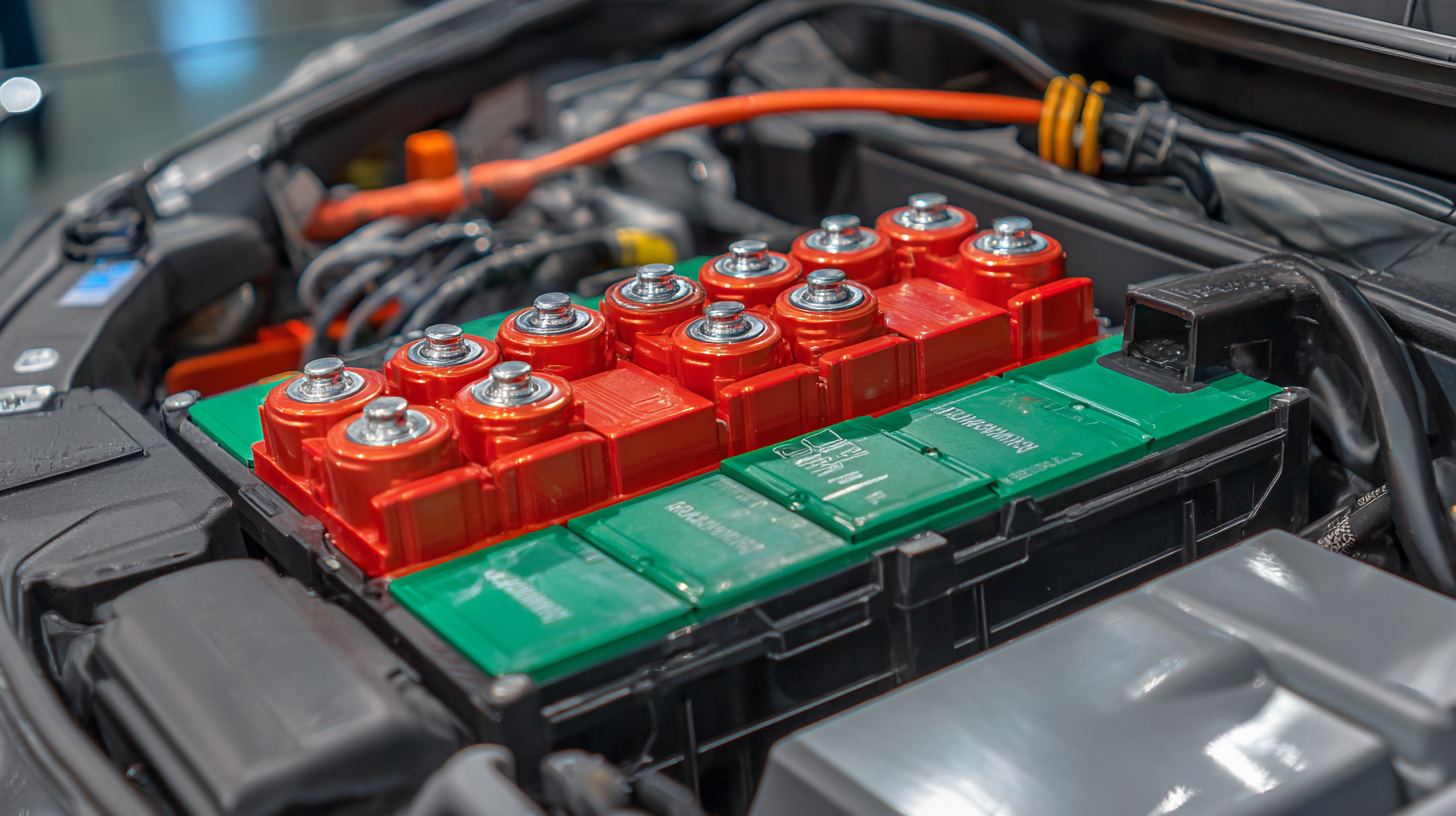
Future Trends in Lithium Battery Development for Automotive Applications
As the automotive industry continues to evolve, lithium battery technology is at the forefront of innovation. Future trends indicate that the demand for lighter, faster-charging, and more energy-dense batteries will shape the development of automotive applications. According to a report by the International Energy Agency, the global demand for lithium-ion batteries is projected to grow tenfold by 2030, driven not only by electric vehicles (EVs) but also by advancements in hybrid technologies. Manufacturers are investing heavily in research to enhance battery longevity, aiming for an average lifespan of 15 years or more, which aligns with consumer expectations for sustainable and reliable transportation.
Tip: When considering new vehicles, pay attention to the battery warranty and lifespan information. A longer warranty often indicates a higher-quality battery, which can enhance your vehicle's overall performance.
Moreover, the integration of solid-state battery technology is gaining traction, promising to offer greater safety and efficiency. This innovative approach could potentially reduce the risk of thermal runaway in batteries, a common concern in lithium-ion systems. According to industry experts, solid-state batteries could provide up to twice the energy density of conventional lithium-ion batteries, which translates to longer driving ranges for electric vehicles. The anticipated shift towards these next-generation batteries may redefine what consumers expect in terms of performance and reliability.
Tip: Stay informed about emerging battery technologies in the automotive sector, as they can significantly influence vehicle purchasing decisions and future resale values.
Understanding the Benefits of Car Start Lithium Battery Technology for Modern Vehicles - Future Trends in Lithium Battery Development for Automotive Applications
| Feature | Lithium Battery Advantage | Future Trends |
|---|---|---|
| Weight | Lighter than traditional lead-acid batteries | Development of solid-state lithium batteries |
| Charging Time | Faster charging capability | Advancements in fast-charging technologies |
| Lifespan | Longer cycle life compared to conventional batteries | Increased focus on battery recycling and reuse |
| Temperature Tolerance | Better performance in extreme weather conditions | Research on temperature-adaptive battery materials |
| Environmental Impact | Lower toxicity and decreased pollution | Enhanced sustainable sourcing of materials |
Related Posts
-
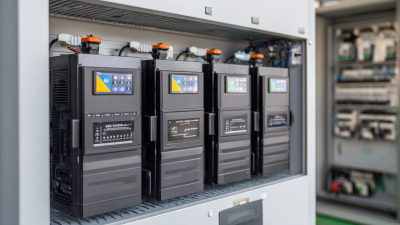
Chinese Excellence in Manufacturing the Best Power Wall Lifepo4 Battery 10kwh 200ah for Global Trust
-
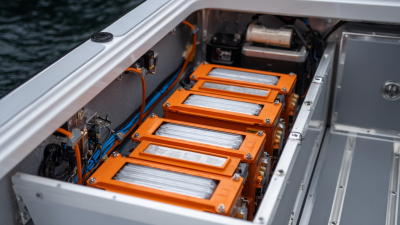
Unlock Maximum Power and Efficiency with 16s LFP Boat Batteries for Your Next Maritime Adventure
-

How to Choose the Best Waterproof Marine Battery for Your Next Adventure
-

How to Choose the Right 72V LiFePO4 Battery for Your Golf Cart: Essential Insights and Tips
-

6 Tips to Maximize the Lifespan of Your Automobile Start Lithium Battery
-

Crafted Excellence: The Global Rise of China's Premier Wall-Mounted Energy Storage Solutions







